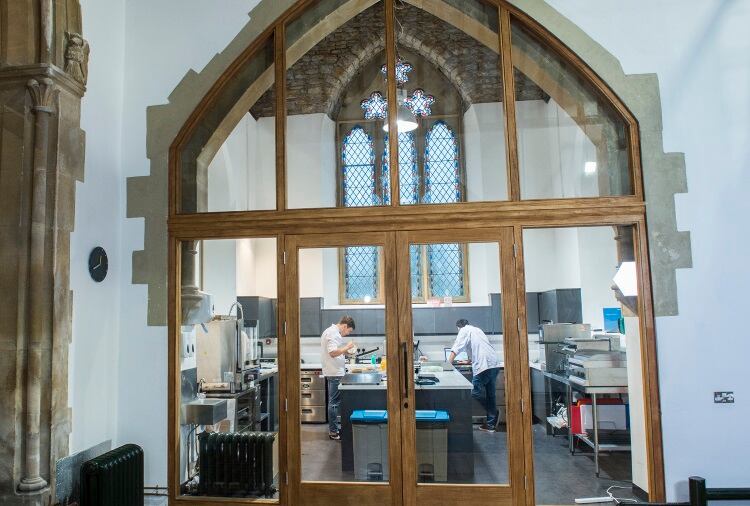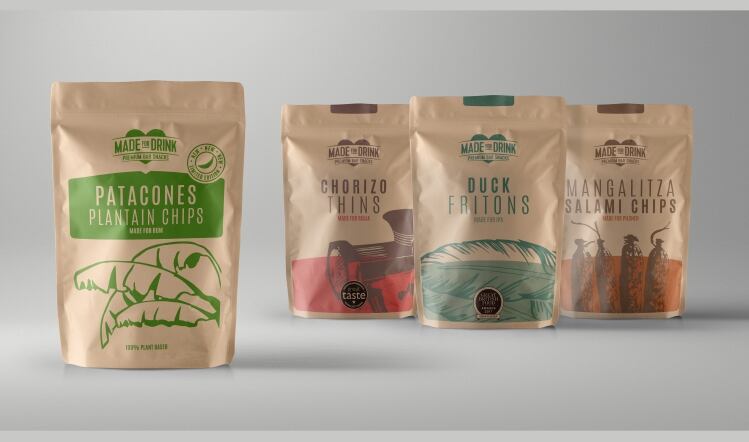In a world increasingly dominated by consumers with a money-rich, time-poor existence, creating innovative products that grab their attention and inspire them to purchase is becoming more and more difficult.
Mirroring this, the era in which a manufacturer could spend a year or two to develop, test and fine-tune a product prior to launch has largely gone – and today, the pressure is on to win the new product development (NPD) race, with agile start-ups challenging the more established and often slower-to-move global brands. The more enlightened manufacturers are realising this and turning to research and food innovation companies to help them stay ahead of the game.
One such firm at the forefront of product innovation is MMR Research. Having long placed sensory analysis as the basis of its product development, the Oxfordshire-based company last year launched its Express platform, designed to answer the need for flexibility, human interaction and a comprehensive range of adaptable product development tools.
To drive this, MMR elevated Simon Williams, who has been with the company for seven years, to head of agile research – and in doing so, shifted its response to client demand into an entirely new gear.
“It feels like we are reaching a tipping point with regards to how bigger companies view innovation,” Williams explains. “The pressure they face from retailers to keep things fresh, the fact that the obvious gaps are filled already, and competition from smaller, nimbler competitors – better able to launch and support more targeted products – is reaching boiling point.”
Who is Simon Williams?
Simon Williams began his career at research firm Nielsen, where he worked in the consulting group and in the Unilever account team.
He then, as he puts it, “jumped from super-tanker to rowing boat” and worked at a small qual/quant consultancy before joining MMR Research seven years ago, where he has been global account director on the Unilever account, director of global research, and head of Agile research.
The problems facing global manufacturers on the rapidly evolving NPD stage include the “very rigid NPD stage-gate processes that have been imposed historically at corporate level”, making it difficult to adopt more of a start-up mentality towards NPD. “In fairness, it is a lot harder for global companies to act like start-ups,” says Williams. “They have many more stakeholders across complex corporate structures, from which to get buy-in. They potentially have to activate across global markets, striking a balance between efficiency of offering and representing different global needs.”
Williams points out that most start-ups have lean and focused innovation processes out of necessity, as they have no resources for anything else, but that larger companies can also have a start-up mindset and do have the resources to present themselves with real choices.
“However, when trying to launch products that are genuinely different with the potential to have a disruptive impact, more enlightened [global] businesses are realising they must free themselves from some of the shackles imposed by this [stage-gate] process,” Williams explains. “They need to fight back, with a different set of weapons.”
When starting Express, MMR felt the compromises associated with existing agile provisions didn’t give companies the choices they needed. “Too much standardisation in content leads to inflexibility. Too much automation leads to a lack of advice and consultancy from experts,” said Williams.
As a result, Express offers flexibility , from survey design through to sample composition, with research experts available to guide clients through the entire process. “The savings in time and cost are made from automation and efficiency in any areas where human input doesn’t add real value,” he adds. “A further area of difficulty for [global] companies is that their scale can lead to breakdowns in communication – so much so that workstreams can veer off course, away from a commonly agreed destination.”
Customisable tools
The Express response to this, says Williams, is to provide a suite of customisable tools covering the entire innovation workstream, offering conceptual profiling, using indirect research techniques across the suite “to ensure we can assess how well the workstream is adhering to the desired destination”.
This suite of tools can be used in isolation on an ad-hoc basis to save time at particular stage-gates, but savings at an analysis level such as this can be increased by establishing a relevant study design, then buying into a program.
“The jewel in the Express crown is our Accelerator methodology, which combines both quantitative and qualitative aspects in a central location,” said Williams. “As consumers test the products, clients can view the results live on an online platform. Questions and thoughts can be explored as soon as they arise, so that the clients leave the session with absolute clarity in next steps, ready to hit the ground running the next day, based on a commonly agreed consensus from the stakeholders present (either in person or joining virtually).
“Our objective is to provide busy, over-stretched companies with the confidence and reassurance that their research is in safe hands and that they have spent their budget wisely, feeling genuinely empowered by the quality and actionability of the insight they receive.”
During a product’s development, there is a tendency among today’s corporates to identify and hone in on a well-understood need and group of consumers, only to end up dumbing down the proposition in a quest to drive up appeal ratings with the masses. This, Williams suggests, seems counter-intuitive, particularly when smaller competitors are able to stay focused and develop products that perfectly deliver on their brand promise, staying true to the needs and demands of their target consumer.
“If global companies can learn from this, use the right agile and sensory branding research tools to develop more meaningful products, and then use their marketing might to drive all-important distribution and focused, targeted launch campaigns (all very possible with today’s advances in social media targeting), they should be well positioned to get the best of both worlds – an entrepreneurial approach to NPD backed by the ability to really punch their weight in the market,” he explains. “It is a winning combination, but only if the shackles are removed and the old-school ways are seen for what they are – 10 years out of date!”




